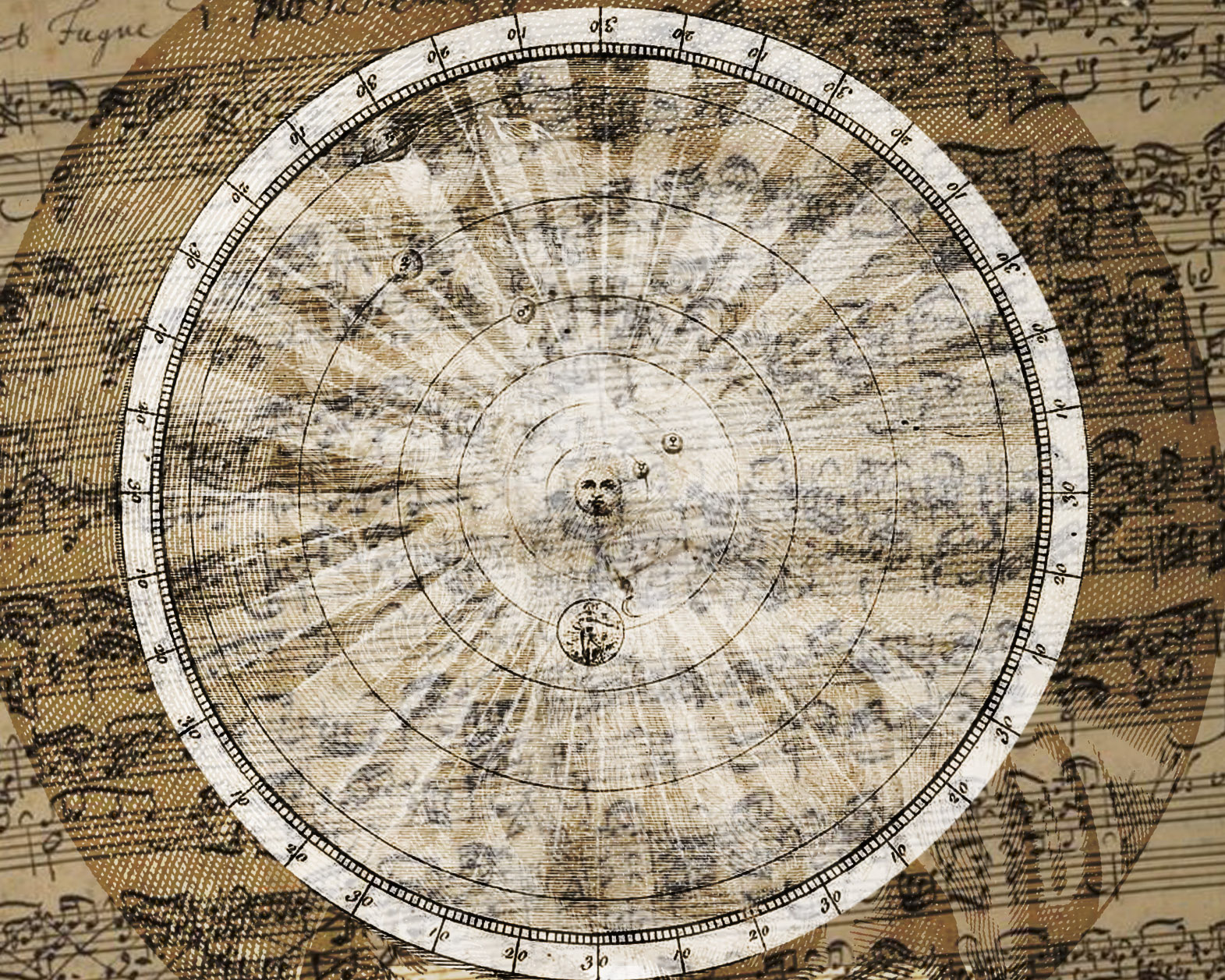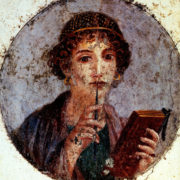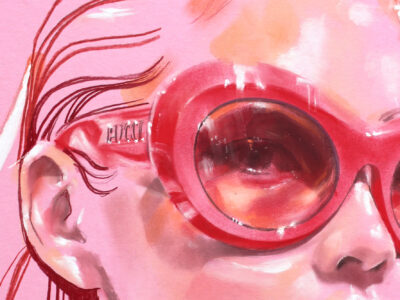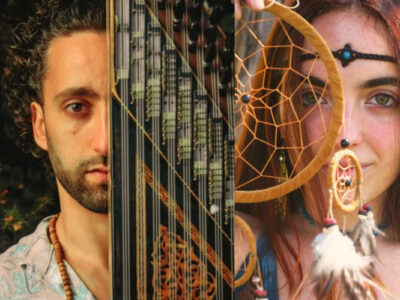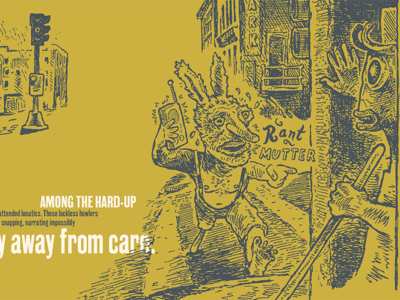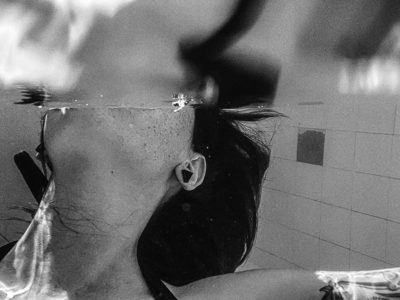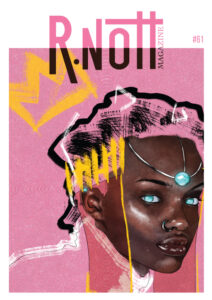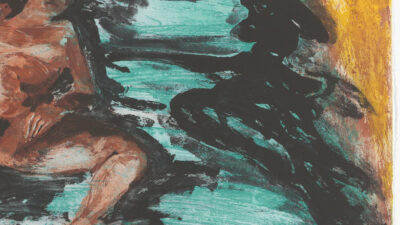Confira aqui um Interrogatório super especial com Bill Curtis, o baterista e fundador de uma das mais aclamadas bandas de disco, soul e funk que já nasceram nos Estados Unidos, a nova-iorquina Fatback Band.
“Eu tinha cerca de 15 anos, e todos na banda tocavam bateria melhor do que eu.”
- E aí Bill, como vai? Estamos muito contentes em tê-lo na revista.
Ótimo Vinicius! O prazer é meu, e obrigado pelo convite.
- Como, quando, onde e por quê.
Ok, eu nasci em Fayetteville, North Carolina, e fui criado pela minha Mãe como filho único. Minha Mãe era uma amante da música e tocava piano. A primeira coisa que ela trouxe quando arranjou a nova casa foi o piano, e esse foi o meu primeiro instrumento, embora eu não o toque mais. Comecei a tocar bateria no colégio, e a primeira banda com que toquei foi a Fairley Brother. Eu não sabia tocar. A razão pela qual me escolheram era que eu era a única pessoa na cidade que possuía uma bateria. Minha mãe não me deixava emprestar essa bateria, então eles me deram o posto. Eu tinha cerca de 15 anos, e todos na banda tocavam bateria melhor do que eu.
Quando eu terminei o colegial (na E.E. Smith) fui para New York… “A Big Apple”. Nesse verão eu fui para a escola de música, me inscrevi para a Harnett School of music. Tive que deixar a escola e juntar-me ao exército porque estava difícil de arrumar trabalho e o inverno estava vindo. New York é um lugar muito frio para se estar no inverno, sem lugar onde se possa ficar… Então tem que ser o exército. Cumpri os meus quatro anos lá e voltei para New York para terminar meus estudos. Acabei nunca terminando-os academicamente, e comecei a minha família. Tinha então que começar a trabalhar de verdade. Meu primeiro trabalho profissional foi com Noble Watts e Big Maybell, e daí eu parti com Paul William. Toquei também com Bill Doggett, Sil Austin, King Curtis e Clyde McPhatter. Tive muitos trabalhos em estúdio e toquei na orquestra no Apollo Theater por um tempo antes de começar o meu próprio grupo. Eu era o que geralmente se chama como músico freelance da noite, o que significava que eu podia tocar em qualquer lugar em que se precisasse de um baterista. Comecei o meu próprio selo musical aí pelo fim dos anos 60, chamado Fatback Records, juntamente com o meu coprodutor, Sam Culley.
Nosso primeiro lançamento foi Mary Davis. Sim, a mesma Mary Davis, vocalista principal com a SOS Band. Tínhamos quatro artistas no selo: The Four Puzzles, Jimmy William, e Tom and Gerry. Eu estava produzindo durante o dia, enquanto nas noites e fins de semana eu tocava em clubes com trios de jazz. Toquei com Charlie Williams, Don Pullen & Bubba Brooks. Nós tocamos em um clube por cerca de seis anos, e ao mesmo tempo eu estava tocando dance music com Ron Anderson, em uma banda de R&B. A música começou a mudar naquela época. Um novo som tinha surgido na… Motown. Eu estava tentando me livrar do som R&B e era para ali que eu ia, então formei o meu grupo. No início eram Baixo, Bateria, Guitarra e Metais. Eu estava dividindo alguns músicos com um amigo, Warren Daniels, quando tínhamos algum show, mas aos poucos as datas dos shows começaram a bater e eu tive que arranjar os meus próprios músicos.
Esse foi o início da Fatback Band. Johnny King na guitarra, Johnny Flippen no baixo. Em pouco tempo adicionamos metais, Earl Shelton no sax, George Williams no trompete e Wayne Wooford nas congas. Essa foi a primeira e original Fatback Band.

- O que é ‘Fatback’?
‘Fatback’ é a parte gorda de cima do porco, geralmente curada com sal1. Quando cozida solta muita gordura, e era a única carne conhecida por muita gente pobre, e a gordura era usada para condimentar praticamente toda a nossa comida. As pessoas no sul ainda hoje seguem comendo e cozinhando com um pouco de ‘fatback’. Caso você entre em algum restaurante e veja o ‘fatback’ no menu, saberá que esse é um lugar repleto de emoção. Eu tinha que contar um pouco disso, algo sobre o ‘fatback’… Então por que eu chamei a minha banda de Fatback? Foi um apelido que eu recebi de Eric Gale, um guitarrista. Tocamos juntos na Ron Anderson Band. Quando ele queria um certo ritmo, dizia ‘faça aquele ritmo engordurado, aquele ritmo fatback’. Era tipo uma variação de um double shuffle na mão esquerda, com o beat New Orleans tocado no pé. Veja, eu andava cansado de apenas tocar o back beat dois e quatro como todo o resto dos bateristas de R&B, então quando montei o meu próprio grupo, chamei-o de Fatback, e tocávamos essa música engordurada, que queria dizer música ‘repleta de espírito’ (soulful), funky music.
Mas quando se fala da batida Fatback… Não estão falando sobre essa. Essa de que estão falando é a que eu misturei a batida Calypso e um back beat com o quarto tempo no pé. Esse é o famoso Fatback beat que você ouve em disco, house e funky music. Eu não pretendia me alongar tanto, mas já que você perguntou eu aproveitei para esclarecer a história. Nós não recebemos muitos créditos pelas contribuições que fizemos à música.
- Como foi o nascimento da Fatback Band? O que você imaginava e esperava naquele tempo?
Acho que eu já respondi a primeira parte da sua pergunta acima. O que eu imaginava e esperava… Bem, nada do que realmente aconteceu. Estávamos só fazendo música e nos divertindo com isso. Eu pensei sim em gravar com a minha banda quando eu estava produzindo, porque as bandas não estava vendendo. Eu nunca as usei quando era produtor, eu sempre uso músicos de sessão. Lembro de Johnny King me perguntando por que eu não gravava a minha banda e arranjava um hit. Não lembro bem agora como tudo isso aconteceu, mas eu estava por aí negociando minhas gravações da Fatback, buscando um acordo de distribuição, e encontrei um antigo amigo chamado Bo Frazier, que disse que estava começando um novo selo e que eu devia passar no seu escritório de vez em quando. Eu fui no dia seguinte, e não falei com ele sobre um acordo de distribuição, mas sobre a minha banda. Eu disse que tinha um novo ideal e queria gravar algum Country e Western funk. Ele disse que nunca tinha ouvido falar de algum Country funk mas me deu um orçamento de $5.000 para fazer um álbum. Fomos ao estúdio e fizemos 12 músicas em quatro horas… E as mixamos em três horas. Acho que fizemos duas country e o resto era puro funk. Isso foi na Perception Records.
E como era fazer gravações nos anos 70? Nessa época era muito divertido, porque você tinha a possibilidade de fazer duas coisas, tocar e criar. A maioria dos produtores deixava que os músicos criassem um tema. Eles apenas entravam e diziam “o que você ouve?” Houve tantas músicas gravadas durante os 70… Acho que uma das razões pelas quais a Fatback demorou tanto para arrancar foi que havia tanta música boa por aí, e o que fazíamos era caminhar para uma batida diferente.

- De onde vinha o seu material? Músicas, temas, letras?
Do topo da minha cabeça e dos caras da banda.
- O que você sente quando olha para trás e vê o início de coisas como a line dancing e o hip-hop, já que vocês foram partes (ou os pais) desses movimentos? King Tim III, por exemplo, é largamente considerado o primeiro tema hip-hop lançado. Como você vê isso depois de tantos anos?
Eu me sinto ótimo a respeito de todas as coisas que fizemos e com as quais contribuímos. Só o que me incomoda é que não recebemos nenhum crédito ou reconhecimento. Sim, alguns por aí sabem suas histórias musicais. Eu sempre digo aos meus rapazes para sentirem orgulho de si mesmos, porque nós fomos os pioneiros. Nós deixamos as nossas pegadas nas areias da música.
- O álbum Raising Hell saiu em 1975, com o tremendo sucesso da faixa Do the Bus Stop. O tema recebeu um tipo de sequência em 1977, no álbum NYCNYUSA, com Double Dutch. Como, e por que, você fez essa sequência? (para mim, são dois dos meus temas preferidos, e sempre os ouço um após o outro)
Hey, esse foi um ótimo álbum. Você sabia que “Do the Bus Stop” estourou no Reino Unido antes de estourar nos EUA? Meu parceiro Gerry Thomas, que estava tocando com Jimmy Caster na época, estava na Inglaterra fazendo shows e me ligou, dizendo que temos um hit, e eu digo “What, Bus Stop!” “Sim! É melhor você vir para cá!”
Agora, foi assim que acabou surgindo a Double Dutch… já que eu criei o estilo da dance music (eu não criei realmente as danças de Bus Stop ou Double Dutch, só as gravei). A ideia para a Bus Stop eu arranjei dos Griffin Brothers, uma banda de Washington, D.C., aí dos anos 40 ou começo dos 50. Acredito ter visto um casal dançando esse estilo em New Jersey. Me lembrou de crianças girando cordas para pular2; acabei apenas fazendo uma música sobre isso.
- O que mudou para a funk music nos anos 80?
Você quer dizer para a música da Fatback ou para a Funk music como um todo? Só posso te contar a respeito da nossa música. Eu não seguia, nós liderávamos. Tinha completa liberdade para gravar qualquer coisa que quisesse; eles deixavam na minha mão. E às vezes achavam difícil conseguir reproduções ao vivo nas rádios. Nosso som não se encaixava no que as rádios queriam. Foi apenas pelo fim dos anos 70 e início dos 80 que começamos a nos tornar populares. Nesse tempo a banda era um grupo bem temperado com todos os ingredientes de gordura e funk. Nessa época muitas outras bandas surgiram na cena usando os ingredientes da Fatback. Vinicius, aposto que você não sabia que as gravadoras não assinavam contratos com bandas funk de rua até a primeira grande gravação da Fatback, “Goin Home to See my Baby”; um presentinho para o seu livro de história.
- Websites como o Wikipedia contam que a banda alcançou um sucesso substancial no Brasil nos anos 70. Você gosta da música brasileira?
Nunca toquei no Brasil, mas amo sua música. Estive no carnaval umas cinco vezes nos anos 80 e no começo dos 90, me diverti muito. Já pensei em me aposentar por lá uma vez. Sou bastante familiarizado com o seu país.
- Como vai a banda hoje? Algum novo material?
A nova Fatback tem tocado junta, por aí, desde 2004. Temos postado novas músicas na internet. Hoje em dia eu gravo sob o nome de Bill Curtis and Friends w/ The Fatback Band. Agora me deixe explicar a razão pela qual comecei a gravar com o meu próprio nome… A Fatback Band já foi & já fez história e eu não estou tentando competir com isso ou ficar no mesmo saco. Dessa maneira eu tenho mais espaço para criar outras coisas e para experimentar.
Ligeiras:
Melhor show que você já fez – O último Festival em Glastonbury
Melhor show que você já assistiu – Marvin Gaye
Tema da Fatback que você mais gosta de tocar ao vivo – I found lovin’
Maiores influências e heróis – Paul Williams e Bill Doggett
1 N.t.: um tipo de toucinho.
2 N.t.: a brincadeira de pular a corda dupla é conhecida nos EUA como “double dutch”.
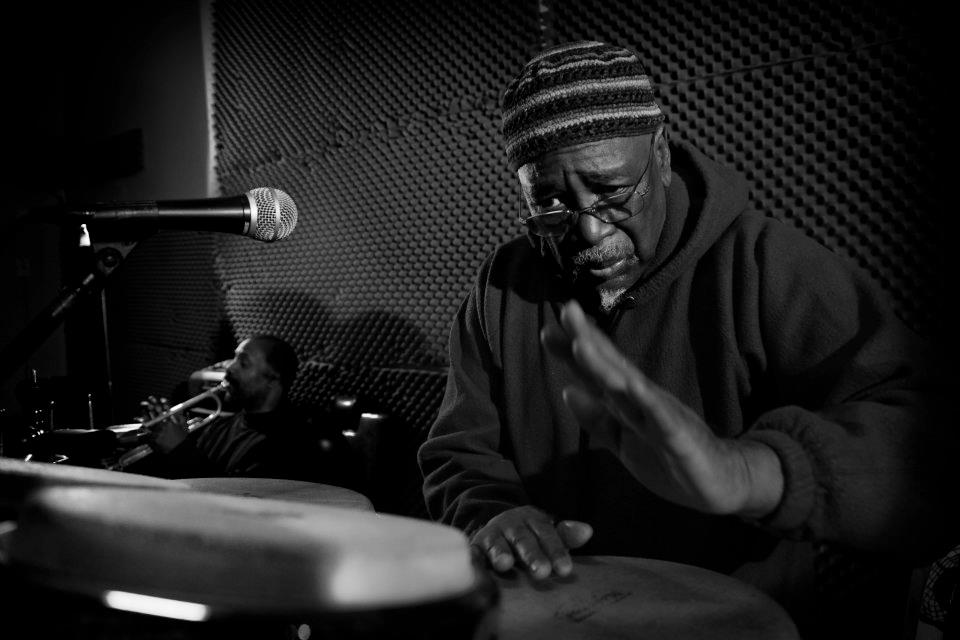
Site Oficial:
http://www.fatbackband.com/
English Version
- Hey Bill, how you doin’? We’re very glad to have you in the Mag.
Great Vinicius! It’s my pleasure and thank you for asking.
- How, when, where and why.
Ok I was born in Fayetteville, North Carolina and was raise by my Mother, as an only child. My Mother was a music lover and she played the piano. The first thing she brought when she got her new house was a piano and that was my first instrument. However I don’t play it now. I started playing drums in high school. The first band I ever played with was the Fairley Brother. I didn’t know how to play. The reason they took me was because I was only person in town that owned a set of drums. My mother wouldn’t allow me to loan the drums out so they gave me the job. I was about 15 years old then. Everybody in the band played drums better than I did .
When I finished high school (E.E. Smith) I went to New York…” The Big Apple”. That summer I went to music school. I enrolled in Harnett School of music. I had to leave school and join the Army because work was hard to come by and winter was coming in. New York is a cold place to be in winter time, with no place to stay…so the Army it was. I did my four years there and came back to New York to finish my schooling. I never did finish academically and I started a family. Then I had to start working for real. My first professional job was with Noble Watts and Big Maybell and then I went out with Paul William. I also played with Bill Doggett, Sil Austin, King Curtis and Clyde McPhatter. I did a lot of studio work and played in the orchestra at the Apollo Theater for a while before I started my own group. I was what you’d call a freelance club musician. That meant I could play whatever the job required as a drummer. I started my own record label sometime in the later 60’s as Fatback Records along with my co-Producer, Sam Culley.
Our first release was Mary Davis. Yes, the same Mary Davis, lead singer, with SOS Band. We had four artists on the label; The Four Puzzles, Jimmy William, and Tom and Gerry. In the meantime, I was producing during the day and at night & on weekends, doing club dates with jazz trios. I performed along with Charlie Williams, Don Pullen & Bubba Brooks. We played in one club for about six years. At the same time I was playing dance music with Ron Anderson which was an R& B band. Music started changing about that time. A new sound was come in…Motown. I was trying to get away from the R & B sound and that’s where I wanted to go, so I formed my group. At first it was Bass, Drums, Guitar and Horn. A friend of mine Warren Daniels & I was sharing musicians when we had a gig. Then gigs started coming on the same dates and I had to get my own music musicians.
This was the start of the Fatback Band. Johnny King on Guitar, Johnny Flippen on bass. Before long we added a horn, Earl Shelton on sax, George Williams on trumpet and Wayne Wooford on Congas. This was the first original Fatback Band.
- What is the ‘Fatback’?
Fatback is the fat side from upper part of pig usually cured by salt. when cook gave off a lot of grease, that was the only meat a lot poor folk knew about, that grease was use to season just about all of our food. People in the south are still eating and cooking with a little fatback. If ever go in a Restaurant see some Fatback on the menu you know that a soulful place. I had to throw that in a little something about fatback…So why did I call my band Fatback? it was my nickname given to me by Eric Gale, a Guitarist. We played together in the Ron Anderson Band. When he wanted a certain beat, he would say play that grease beat that Fatback beat. it was kind of a variation of a double shuffle in the left hand, with New Orleans beat played with the foot. You see I was tired of just playing back beat two and four like all the rest of R & B drummers, so when I got my own group, I named it Fatback and we played grease music, which meant soulful music, funky music.
But when they’re talking about the Fatback beat… they’re not talking about that beat. The one that they’re talking is the one I mixed a Calypso beat with a back beat with a four on foot. That the famous Fatback beat that you hear in disco, house and funky music. Don’t mean to be so lengthy but since you asked I want to set the record straight. We don’t get that much credit for the contributions we made to music.
- How was the birth of the Fatback Band? What did you imagine and expect then?
I think I answered the first part of your question above. What did I imagine and expected well nothing like what did happen. We were just making music and having fun doing it. I did think about recording my band, when I was producing, because bands weren’t selling then. I never did use them when I was producing. I always use session musicians. I remember Johnny King asking me why don’t you record your band and get a hit. I can’t recall right now how all of this came about but I was out shopping my Fatback records looking for distribution deal and ran into old friend of mine Bo Frazier that told me he was starting a new label and to stop by his office sometimes. I did the next day I didn’t talk to him about a distribution deal but about my Band. I told him I had a new ideal and I wanted to record some Country and Western funk. He said he never heard of any Country funk but gave me a budget $ 5000 to do an album. We went in the studio and did 12 tunes in four hours… we mixed then in three hours. I think we did two country tunes and rest was pure funk. That was on Perception Records.
What was it like making records in the 70’s? Making records by then was a lot of fun because you got a chance to do two things, play and create. Most producers left it to the musicians to create a sound track. They would just come in and say “what you hear”? There was so much music recorded during the 70’s. I think that was one of the reasons why Fatback took so long to get any traction. it was so much great music out there and what we were doing was marching to a different beat. Hey Vinicius, you can put all of this together so that it makes some kind of sense?
- Where did your material come from? Music, themes, lyrics?
Off the top of my head and from the guys in the band.
- What do you feel when you look back and see the beginning of things like the line dancing and the hip-hop, as your were parts (or fathers) of those movements?
King Tim III, for example, is widely considered the first hip-hop song ever released. How do you see that after so many years?
I feel great about all things we did and contributed, the only thing that bothers me is that we don’t any credit or recognition. yes a few out there know their music history. I always tell my guys to be proud of themselves because we were the pioneers. We have left our footprints in sands of music.
- The album Raising Hell came out in 1975, with a huge success of The Bus Stop. The song received a kind of sequel in 1977, in the NYCNYUSA album, with the Double Dutch. How, and why, you made a sequel? (as for me, they’re two of my favorite songs and I always listen to them one after the other)
Hey, that was a great album do you know “Do the Bus Stop” was a hit in the UK before it was a hit in USA My partner Gerry Thomas who was playing with Jimmy Caster at the time was in the U K performing and call me and we got a hit, I said what Bus Stop!
Yes! You better get over here. Now that’s how Double Dutch came about… since I created dance style music (I really didn’t create the dance styles Bus Stop or Double Dutch) I just recorded them. I first got the ideal for Bus Stop from the Griffin Brothers a band of Washington, D C. I think in the late forties or early fifties. I believe I saw a couple dancing that style in New Jersey. It reminded me of kids turning double dutch jump rope; I just made a song about it.
- What changed for the funk music in the 80’s?
Do you mean Fatback music or Funk music as a whole? I can only tell you about our music. I didn’t follow, we were leaders. I had free range to record whatever I felt like; they left it up to me. They found it little hard sometimes trying to get air play on the radio. Our sound didn’t fit the sound radio wanted. it wasn’t until the late 70’s and early 80’s, we begin catch on. By then the band was a well seasoned group with all the grease and funky ingredients. During this time a lot of bands came to the scene using fatback’s ingredients. Vinicius, I bet you didn’t know that record companies didn’t start signing street funk bands until after Fatback’s first big record “Goin Home to See my Baby” a little something for your history book.
- Websites like Wikipedia tell that the band had a substantial success in Brazil back in the 70’s. Do you like the Brazilian music?
Never played in Brazil, but I do love their music. Been to Carnival about five different times in the 80’s and early 90’s had a ball. I was thinking about retiring there at one time. I am very familiar with your country.
- How is the band doing today? Any new material?
The new Fatback been playing together off and on for about 15 years since 2004. We have been posting new music. Now a day I record under the name of Bill Curtis and Friends w/ The Fatback Band. Now let me explain the reason I started recording under my name… Fatback Band has already done it & made history and I’m not trying to compete with that or stay in that bag. This way, it give me more room to do more created things and to experiment.
Quick ones:
Best gig you did – Last Glastonbury Festival
Best gig you saw – Marvin Gaye show
Fatback song you enjoy the most playing live – I found Lovin’
Greatest influences and heroes – Paul Williams and Bill Doggett



